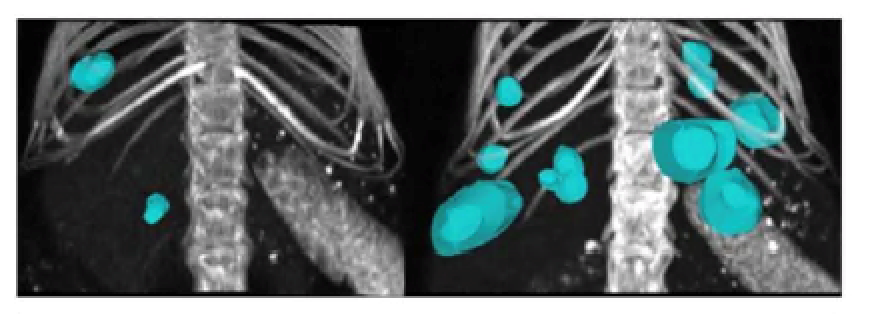MiR-22 slows down liver cancer
Hepatocellular carcinoma is a deadly and very common liver cancer. The lack of efficacy of conventional treatments is driving the search for new treatment options. In this context, tiny non-coding nucleic acids called microRNAs represent a potential innovative avenue that could open up new therapeutic possibilities.
MiR-22 does not only restrain fatty liver disease…
Researchers from Prof. Michelangelo Foti laboratory have recently discovered that one of these microRNAs, miR-22, protects against the development of fatty liver disease, a metabolic disease that often progresses to cancer. In the case of high caloric intake, the absence of miR-22 leads to an exacerbated accumulation of fat in the liver.
These exciting results combined with the frequent alterations in miR-22 expression observed in hepatocellular carcinoma, prompted the scientists to investigate the role of this microRNA in the development of liver cancer.
… but also liver cancer
Combining in silico analysis, cell experiments and murine models, scientists have demonstrated that miR-22 plays a tumor suppressor role in the liver. These results, published in the journal Cells, show that a lack of miR-22 increases the number of tumors (see images below) and accelerates the timing of their appearance. The team of research also revealed some of the molecular mechanisms of miR-22 action: the absence of miR-22 indeed leads to alterations of the hepatic sugar and fat metabolism and to the deregulation of important tumor-promoting factors such as the thrombospondin-1.

MiR-22 deficiency promotes tumoral development (in turquoise) in the liver of mice (right image) as compared to wild type mice expressing miR-22 (left image). © adapted from Figure 2 in Gjorgjieva et al. 2022
This study confirms that miR-22 has the potential to restrain hepatocellular carcinoma development and aggressiveness. It opens up new therapeutic avenues, although the specific delivery of miR-22 to liver cancer cells remains a major technical challenge that has not yet been overcome.
18 Oct 2022
